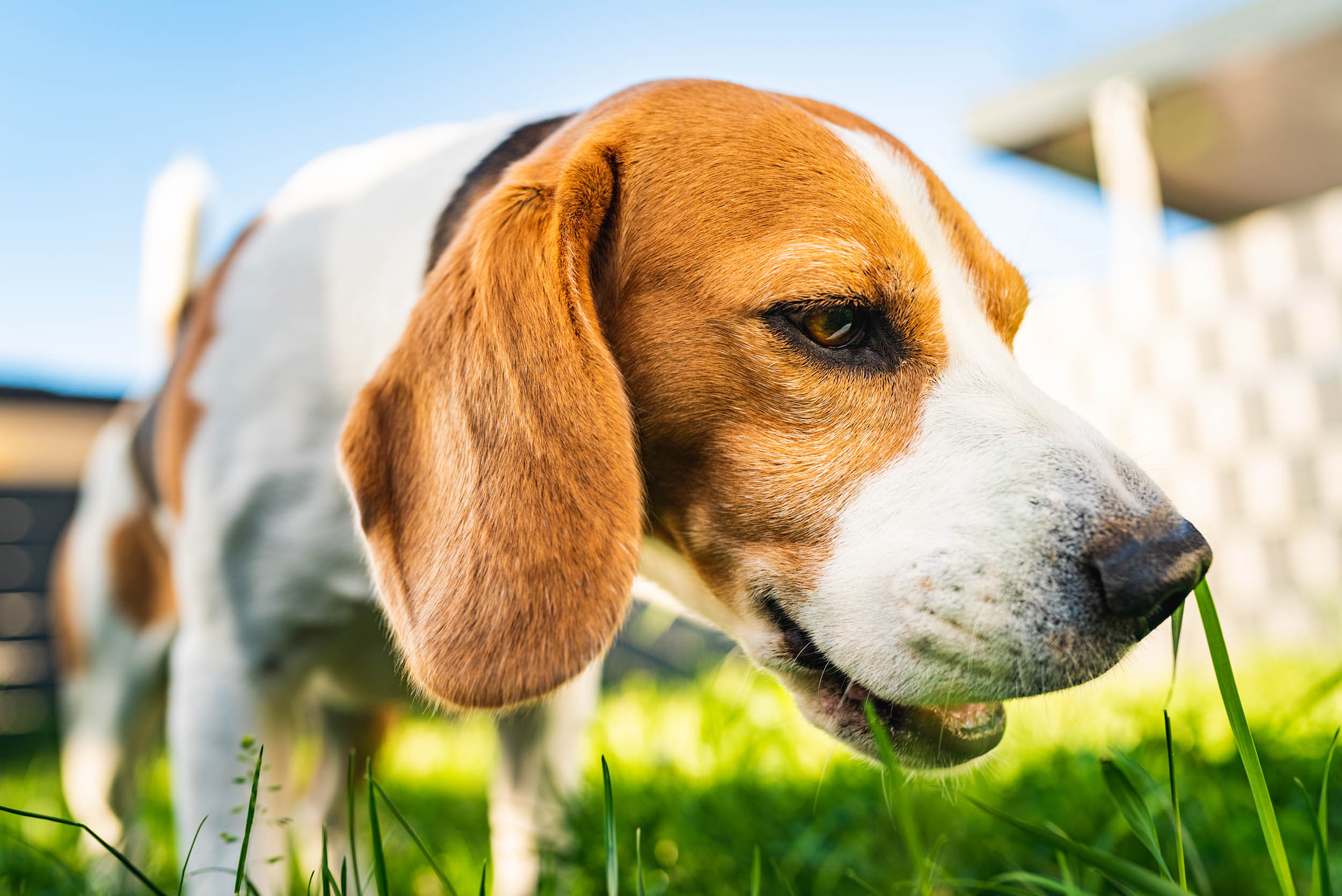If you’re like me, you might have noticed some strange things dogs do when they are outside and stop to ask yourself, why is my dog eating grass?
One possible reason for a dog eating grass is that they are experiencing gastrointestinal discomfort or an upset stomach.
Eating grass can stimulate the gag reflex and cause the dog to vomit, which can help to relieve any discomfort they may be feeling. It’s important to note that this should not be used as a regular remedy, and if the dog is frequently vomiting, it’s best to consult with a veterinarian to rule out any underlying health issues.
There are a number of potential causes of gastrointestinal discomfort in dogs, some of the most common include:
- Diet-related issues: Dogs can have trouble digesting certain types of food or may be allergic to certain ingredients. Eating too much, eating too fast, or eating foods that are not appropriate for dogs can also cause gastrointestinal discomfort.
- Gastrointestinal infections: Dogs can develop infections in their gastrointestinal tract due to bacteria, viruses, parasites, or other pathogens.
- Gastrointestinal disorders: Some dogs may have underlying conditions such as inflammatory bowel disease, exocrine pancreatic insufficiency, or chronic gastritis, which can cause gastrointestinal discomfort.
- Gastrointestinal foreign bodies: Dogs may ingest objects such as toys, bones, or other foreign objects that can become lodged in their gastrointestinal tract, causing discomfort.
- Medications: Some medications can cause gastrointestinal side effects such as nausea, vomiting, and diarrhea.
- Stress: Dogs can experience stress from various sources, such as changes in their environment, new family members, or other dogs. Stress can cause a release of hormones that can affect the gastrointestinal tract, leading to discomfort.
- Toxicity: Dogs can ingest toxic substances such as plants, chemicals, or other toxins that can cause gastrointestinal discomfort.
There could be other causes for the discomfort, and it’s best to consult with a veterinarian for a proper diagnosis and treatment.
It’s also possible that a dog might eat grass as a sign of a nutritional deficiency. Some dogs may start eating grass if they are not getting enough fiber in their diet or if they are lacking certain vitamins or minerals. However, this is less common, and it’s best to consult with a veterinarian for a proper diagnosis.
Nutritional deficiencies in dogs can be caused by a variety of factors. Some of the most common causes include:
- Inadequate diet: If a dog is not receiving a balanced and complete diet, it may not be getting all of the nutrients they need to maintain good health.
- Malabsorption: Some dogs may have underlying health conditions that affect their ability to absorb nutrients from their food, such as exocrine pancreatic insufficiency, inflammatory bowel disease, or certain types of cancer.
- Medical conditions: Some medical conditions can cause a dog to have increased nutritional needs, such as growth, pregnancy, lactation, or certain illnesses.
- Picky eating: Some dogs may be picky eaters and may not consume enough food to meet their nutritional needs.
- Rapid growth: Puppies and young dogs that are growing rapidly may have increased nutritional needs.
- Lack of variety: dogs that are fed the same food over a long period of time may not be getting all the nutrients they need.
Nutritional deficiencies can occur even if a dog is receiving a balanced and complete diet, and it’s best to consult with a veterinarian to rule out any underlying health issues and to discuss any dietary adjustments that might be appropriate.
In some cases, the signs of nutritional deficiency may not be visible until several weeks or even months after the onset of the deficiency, so it’s important to feed a balanced and complete diet and to consult with a veterinarian regularly.
Another possible reason is that eating grass is a normal and natural behavior for dogs. In the wild, canines often eat grasses and other vegetation as part of their diet. Additionally, dogs may be attracted to the taste or texture of grass. Yeah, some dogs are just weird like that. Especially puppies, who may be more inclined to explore their environment and taste different things, including grass.
Lastly, some dogs may simply eat grass as a behavioral or compulsive disorder, similar to how some dogs may excessively lick or chew on things. If this is the case, it’s best to consult with a veterinarian or a professional animal behaviorist for guidance on how to address the behavior.
While eating grass is generally not harmful to dogs, there are some risks associated with it, such as ingesting pesticides, fertilizers, or other chemicals that might have been used on the grass or eating grass that might have been treated with pesticides or other chemicals.
If your little guy is eating grass, it’s best to keep an eye on their grass-eating habits and consult with your veterinarian if you have any concerns.


